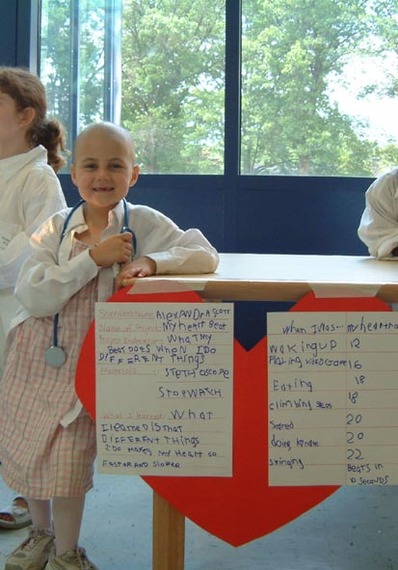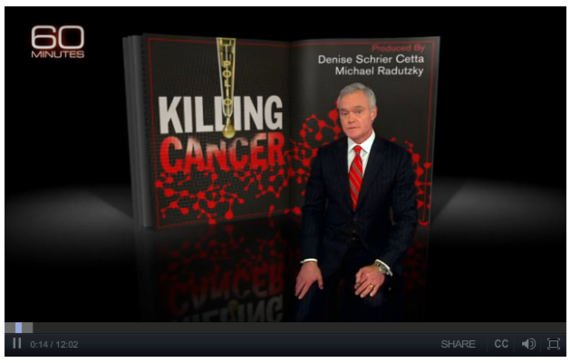The early bird gets the worm. Slow and steady wins the race. For those of us who are parents, these may be familiar sayings that we tell our children to either get them moving, or instead have them slow down. Sure, contradictory ideas, but the principles are sound, and I have found that they also, at times, can extend to how childhood cancer research moves.
It might not come as a surprise that Alex's Lemonade Stand Foundation has sought out the research of innovators in the field of pediatric oncology. When you look back at our history, it is clear that the Foundation itself was created by an innovator, my daughter Alexandra "Alex" Scott. As a child, Alex knew that she could make a difference in the lives of others, and along with working to find a cure for childhood cancers, she was a carrier of that message. When the time came for Alex's Lemonade Stand Foundation to begin funding research, we knew at least two important criteria to keep in mind - we wanted to fund innovative ideas, and we wanted to get in on the ground floor (the early bird gets the worm!) - both things that our young leader had taught us.
Among the questions that I am asked on a weekly, if not daily basis, is what our research has accomplished thus far. We know we have funded the ideas of great researchers, and of course, we have great numbers to share - over $100 million raised and more than 475 research projects funded; but what does that mean in terms of the big picture? You see, the answer to that question is complicated. Do we have research stories to share, yes, absolutely! You may recall that in a previous blog I told you that in many ways Alex's story has come full circle through a young cancer fighter named Edie. Edie's story was very similar to Alex's, she too was diagnosed with neuroblastoma and had exhausted all treatment options - however, Edie would meet a different fate through research that we were an early funder of. Today, Edie is flourishing (and a big sister!) and will soon turn 6-years-old.
The point that I am getting to is that our Foundation takes pride in funding early promising research. We take chances on innovative ideas, where others may not. An example of just that is the research of Matthias Gromeier, MD of Duke University Medical Center. Gromeier was among the earliest classes of our grantees, receiving an Innovation Award in 2006 for his project Targeting Pediatric Brainstem Glioma with Oncolytic Polioviruses. His idea was to take an engineered version of the poliovirus and send it into a tumor in the brain to kill glioblastoma. If that sounds crazy to you, you are not alone; but if you were among those watching CBS's 60 Minutes in late March, you know just how important this research has become.
Click here to watch the CBS segment.
Gromeier, his team and their innovative research at Duke was featured along with the amazing results some patients have experienced, including children. One such patient is Stephanie Lipscomb, who once had a tumor the size of a lime, the tumor shrunk to the size of a pea, and now all that is left is scar tissue. While they are hesitant to use the word cure, their research has most certainly extended lives, including Stephanie who is in her early twenties and studying to be a nurse.
This is where the slow and steady part of cancer research comes in, or at least in the minds of an average person. Gromeier was awarded a grant from ALSF in 2006, and 9 years later the research is just now fully showing its promise. While to the layman, this may seem like an eternity, believe it or not, 9 years in the world of cancer research, to get from an idea to a clinical trial, is not unusual. In fact, it is quite quick. Gromeier was among the very first grants we ever awarded, and we are just now able to report on his miraculous progress; we are confident that this is an indicator of what success lay ahead for many of our other grantees. We look forward to those moments when we can report more of these accomplishments to our supporters and the world, we know they are on the horizon.

